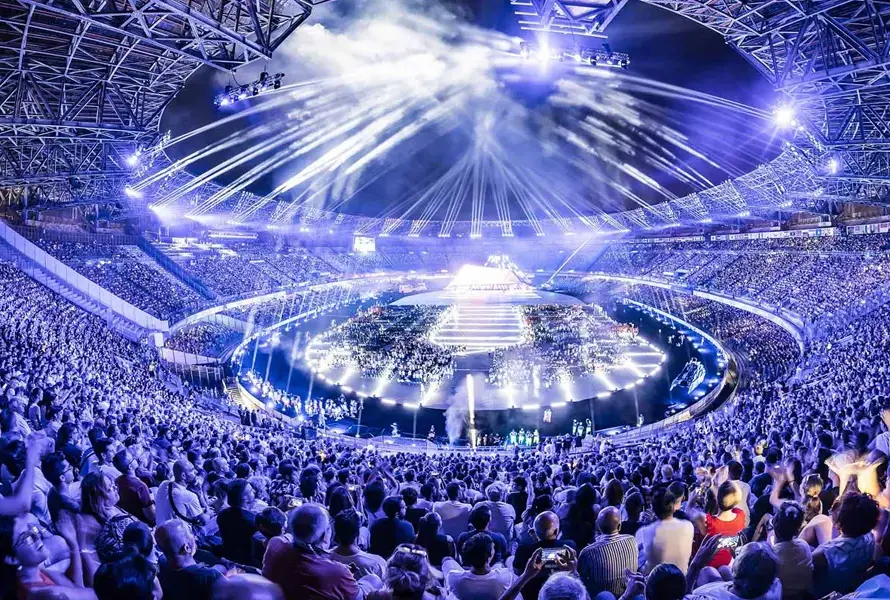Introduction
La Liga has announced the integration of on-chain sponsorship audits under the European Union’s MiCA framework. This initiative marks a pioneering step in applying blockchain transparency to commercial partnerships in professional football. Clubs, sponsors, and regulators can now verify sponsorship transactions, payments, and contractual obligations through blockchain-enabled audits. The move reflects the increasing intersection of digital finance, regulatory compliance, and fan engagement in sports, offering a model for other leagues worldwide.
How On-Chain Sponsorship Audits Work
Under the MiCA framework, sponsorship payments and agreements are recorded on a secure, auditable blockchain. Clubs and sponsors upload contract terms, payment schedules, and milestone deliverables to an immutable ledger. Regulatory bodies can access these records to verify compliance with transparency and anti-money laundering requirements. Smart contract functionalities automatically enforce payment triggers upon milestone completion, reducing disputes and administrative overhead. This system ensures all stakeholders, including fans indirectly, can trust that sponsorship deals are executed fairly and transparently.
Benefits for Clubs and Sponsors
For clubs, on-chain audits reduce financial risk, streamline accounting, and enhance transparency for licensing and regulatory purposes. Sponsors benefit from verifiable proof of exposure and engagement, enabling more precise ROI measurement. The system minimizes errors, mitigates fraud, and strengthens trust between commercial partners. By leveraging blockchain infrastructure, La Liga positions itself as a leader in adopting cutting-edge financial oversight while integrating regulatory standards that comply with MiCA.
Fan Engagement and Market Implications
On-chain audits indirectly benefit fans by ensuring clubs use sponsorship revenue responsibly, enhancing overall financial stability. Transparency may also open avenues for fan-driven voting or engagement programs tied to sponsorship activations. From a market perspective, La Liga’s adoption of blockchain auditing demonstrates the broader applicability of digital finance tools beyond cryptocurrency trading or DeFi. This integration reinforces credibility in sports finance while attracting institutional attention to tokenized assets and smart-contract-based sponsorship management.
Regulatory Significance
The MiCA framework establishes a legal foundation for digital asset usage in the EU, ensuring stablecoins, tokens, and blockchain records meet compliance standards. La Liga’s integration of on-chain sponsorship audits illustrates how regulatory oversight can harmonize with technological innovation. Clubs must adhere to MiCA’s disclosure, reserve, and reporting requirements, creating standardized transparency practices for commercial revenue. This approach reduces legal uncertainty and positions La Liga as a benchmark for regulated digital finance adoption in sports.
Satirical and Cultural Response
Crypto communities and sports fans have responded with humor, joking about “auditing Messi’s hat-trick with blockchain” or “NFT-powered sponsorship transparency.” Satirical commentary reflects attention-driven market behavior and cultural curiosity about blockchain applications. While humorous, these reactions highlight a serious point: fans and observers increasingly consider transparency, trust, and digital innovation when evaluating league credibility and club management.
Risks and Operational Considerations
Despite its advantages, on-chain sponsorship audits carry operational challenges. Smart contract implementation requires robust security and verification protocols to prevent errors or hacks. Regulatory compliance across multiple jurisdictions can complicate adoption for international sponsors. Operational integration with existing financial systems, legacy accounting software, and club administration also requires careful planning. Clubs and sponsors must invest in technical infrastructure, staff training, and compliance monitoring to ensure the system functions smoothly and reliably.
Strategic Insights for Clubs and Sponsors
For clubs, strategic adoption of on-chain audits involves prioritizing transparency, operational efficiency, and compliance alignment. Ensuring all sponsorship contracts are standardized and recorded on-chain minimizes disputes and enhances auditability. Sponsors should leverage blockchain data to evaluate exposure, engagement, and ROI in real time. Both parties can benefit from analytics derived from smart contracts, allowing more precise planning, budgeting, and campaign execution. The integration of regulatory oversight ensures credibility and builds confidence among institutional investors and digital finance participants.
Future Outlook
La Liga’s implementation may serve as a model for other leagues, federations, and entertainment industries exploring blockchain-based audit systems. As adoption increases, fans, sponsors, and regulatory bodies may demand similar transparency across ticket sales, merchandising, and player transactions. Blockchain auditing could expand to integrate tokenized fan engagement, revenue sharing, or NFT-based sponsorship rights. By combining technology and regulation, La Liga demonstrates how digital finance tools can create accountability, operational efficiency, and fan-centric innovation in professional sports.
Conclusion
La Liga’s integration of on-chain sponsorship audits under the MiCA framework exemplifies the convergence of blockchain technology, regulatory compliance, and sports finance. By ensuring transparent and verifiable sponsorship transactions, clubs, sponsors, and fans gain confidence in financial practices, operational efficiency, and governance. This innovation establishes a precedent for sports leagues worldwide, highlighting the potential of blockchain to enhance transparency, accountability, and fan engagement. As digital finance becomes increasingly intertwined with professional sports, La Liga sets a benchmark for leveraging technology responsibly while complying with regulatory standards.




